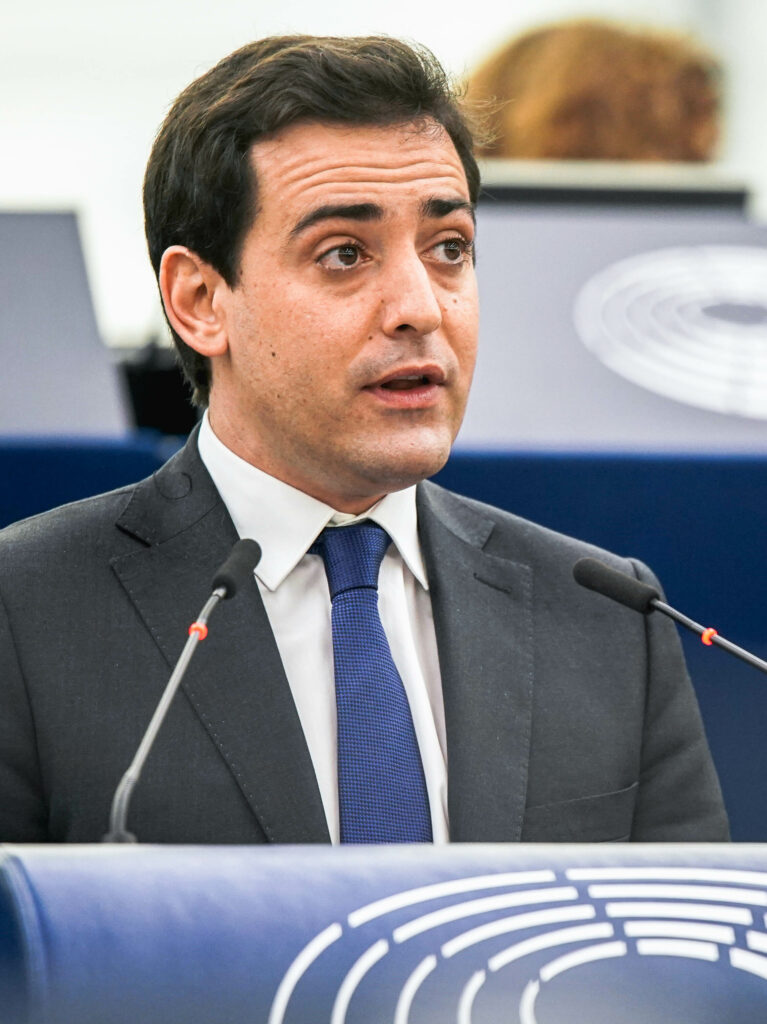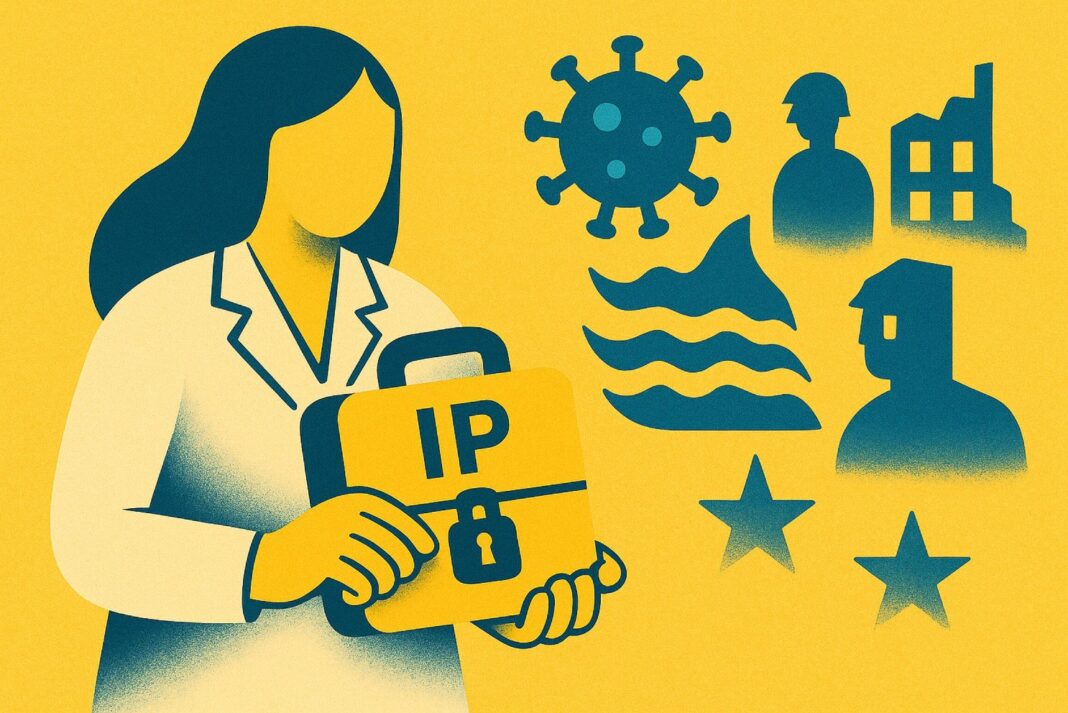Compulsory licensing deal speeds crisis response but stirs innovation fears
In May 2025, the European Union reached a political agreement on a new regulation aimed at harmonizing the use of compulsory licensing across Member States in times of public emergency. Triggered by lessons learned during the COVID-19 pandemic, the regulation is part of a broader initiative known as the patent package, which seeks to modernize the EU’s intellectual property framework and strengthen its strategic autonomy.
Although EU institutions welcomed the proposal as a balanced step toward crisis preparedness, its adoption has sparked critical reactions across several high-tech sectors. In particular, the pharmaceutical, biotechnology, and medical device industries have expressed concern over the potential impact on intellectual property rights, investment incentives, and legal certainty. Key industry players have warned that the measure, if not properly defined and safeguarded, could disrupt innovation ecosystems and weaken Europe’s competitiveness in areas of strategic value.
A harmonized, coordinated framework
In May 2025, the European Union reached a political agreement on a regulation that establishes a single EU-wide system for issuing compulsory licenses during public emergencies. The mechanism is intended for exceptional scenarios, such as pandemics, environmental disasters, or geopolitical disruptions, where access to patented technologies becomes critical for managing the crisis. Only after good-faith negotiations with the patent holder have failed, and following a formal EU emergency declaration, may the European Commission authorize the temporary use of a patent without the owner’s consent.
The aim is to replace the current patchwork of 27 national regimes with a harmonized, coordinated framework. This need for alignment became particularly clear during the COVID-19 pandemic, when the absence of common rules slowed the production and distribution of essential health products. The new regulation is designed to ensure a faster, more predictable EU response in cross-border emergencies, reducing operational delays and legal uncertainty that could compromise the availability of strategic goods.
Licenses will be limited in duration and must include fair compensation for rights holders. Certain sectors, such as natural gas, semiconductors, and defense technologies, are explicitly excluded from the regulation’s scope. Crucially, the measure also guarantees that trade secrets and proprietary know-how cannot be subject to compulsory disclosure.
The final compromise, shaped through lengthy negotiations between the European Parliament and the Council, introduces several safeguards to protect innovation and maintain business confidence. By restricting the license to the use of the patent alone and embedding clear procedural limits, the regulation aims to preserve the competitiveness of EU-based technology developers.
Modernize European IP law
This political agreement marks the first concrete outcome of the broader patent package, a reform agenda launched by the European Commission in April 2023 to modernize the EU’s intellectual property framework. The package includes three core components: a streamlined regime for supplementary protection certificates, a new regulatory system for standard essential patents, and the EU-wide compulsory licensing mechanism.

The regulation aims to reduce legal fragmentation, accelerate the registration and enforcement of IP rights, and improve equitable access to strategic technologies. As Executive Vice-President for Prosperity and Industrial Strategy, Stéphane Séjourné stated: «I welcome the political agreement on the EU wide compulsory licensing scheme. This is another tool to strengthen the EU’s resilience and preparedness to crises. Learning from the past, we are making smart use of intellectual property law. The agreement reflects a well-balanced outcome that supports both innovation and competitiveness, and shows that intellectual property can be a powerful tool in responding to future challenges.»
Stéphane Séjourné, European Parliament from EU, CC BY 2.0, via Wikimedia Commons.jpg
The Commission presented the initiative as a direct response to systemic vulnerabilities revealed by the COVID-19 pandemic, particularly those related to delays in accessing patented technologies essential for public health management. In this context, the regulation is closely aligned with the EU’s post-pandemic doctrine of open strategic autonomy, a policy vision aimed at enhancing the Union’s capacity to act decisively in emergencies, while reducing dependency on non-EU technologies and maintaining selective openness to international trade.
Strategic autonomy or innovation deterrent?
While European institutions have framed the new compulsory licensing regulation as a balanced response to crisis management, the measure has drawn substantial opposition from key segments of the life sciences industry, especially pharmaceuticals and biotechnology. The concern, widely shared across other high-tech sectors such as digital and advanced manufacturing, centers on the potential erosion of legal certainty and the disincentivization of innovation and investment.
As early as April 2023, the European Federation of Pharmaceutical Industries and Associations (EFPIA) reacted strongly to the unveiling of the patent package. In its official response, the organization warned that the introduction of an EU-wide compulsory license risked destabilizing the IP system and sending a negative signal to global investors. EFPIA Director General Nathalie Moll cautioned that such a measure «creates the perception that IP frameworks in Europe are not stable or predictable», adding that it would «undermine the innovation we need when a health crisis hits.» The federation also flagged potential legal inconsistencies, arguing that imposing licensing without consent amounts to “a blatant interference” with the property rights protected under Article 17 of the EU Charter of Fundamental Rights.
United industry front warns of competitiveness risks

This position was later echoed and reinforced in May 2024 by EFPIA with a coalition of four other major European industry federations: MedTech Europe (medical devices), BusinessEurope (cross-sector industry), DIGITALEUROPE (digital and tech), and Eurochambres (chambers of commerce). In a joint business statement, the group acknowledged the EU’s intent to strengthen emergency readiness. Still, it warned that, «in its current form, this initiative will undermine innovation and competitiveness of European companies, ultimately impeding Europe’s ability to tackle future crises effectively». The declaration called for clear and narrow definitions of “crisis” and “emergency,” robust safeguards for trade secrets and non-patented assets such as source code and manufacturing processes, and strong judicial oversight mechanisms.
Nathalie Moll, Director-General of the European Federation of Pharmaceutical Industries and Associations (EFPIA) via Wikimedia Commons.jpg
It also rejected the notion that IP protection impedes innovation: «It is important to address the myth that IP stands in the way of innovation when it is the opposite», the statement read, pointing to the extensive voluntary licensing that occurred during COVID-19.
Biotech sector raises alarms over IP, trade secrets, and global perception
This position was later echoed and reinforced in May 2024 by EFPIA with a coalition of four other major European industry federations: MedTech Europe (medical devices), BusinessEurope (cross-sector industry), DIGITALEUROPE (digital and tech), and Eurochambres (chambers of commerce). In a joint business statement, the group acknowledged the EU’s intent to strengthen emergency readiness. Still, it warned that, «in its current form, this initiative will undermine innovation and competitiveness of European companies, ultimately impeding Europe’s ability to tackle future crises effectively». The declaration called for clear and narrow definitions of “crisis” and “emergency,” robust safeguards for trade secrets and non-patented assets such as source code and manufacturing processes, and strong judicial oversight mechanisms. It also rejected the notion that IP protection impedes innovation: «It is important to address the myth that IP stands in the way of innovation when it is the opposite», the statement read, pointing to the extensive voluntary licensing that occurred during COVID-19.
EuropaBio warns of risks for SMEs and biotech investment climate
Moreover, in an official statement dated 21 March 2024, EuropaBio (the association representing the European biotechnology sector) offered cautious support following the European Parliament’s endorsement of the proposed compulsory licensing regulation. The group welcomed certain improvements achieved during negotiations, including stronger involvement of patent holders, greater emphasis on voluntary licensing, and a clearer definition of compulsory licensing as a measure of last resort.
Nonetheless, the association remained critical of key aspects of the regulation. It objected to the inclusion of pending patent applications within its scope and raised alarm over provisions that could require the disclosure of proprietary know-how and trade secrets, warning that such obligations would «negatively impact the entire European and global biotech ecosystem.» These concerns were particularly acute for small and medium-sized biotech firms, whose market value often depends heavily on their intellectual property. Claire Skentelbery, Director General of EuropaBio, warned that this policy «sends the wrong signal to biotech innovators around the world» and stressed that if Europe aspires to global leadership in biotechnology, «it must ensure that innovation is both protected and rewarded.»
Europe’s challenge now lies in demonstrating that compulsory licensing can coexist with robust IP protections. If the framework deters investment or distorts innovation incentives, it risks undermining the very resilience it aims to reinforce. Striking the right balance between emergency preparedness and long-term innovation will be essential to safeguard Europe’s competitiveness and ensure that strategic autonomy does not come at the cost of industrial confidence.








